Barents Pride
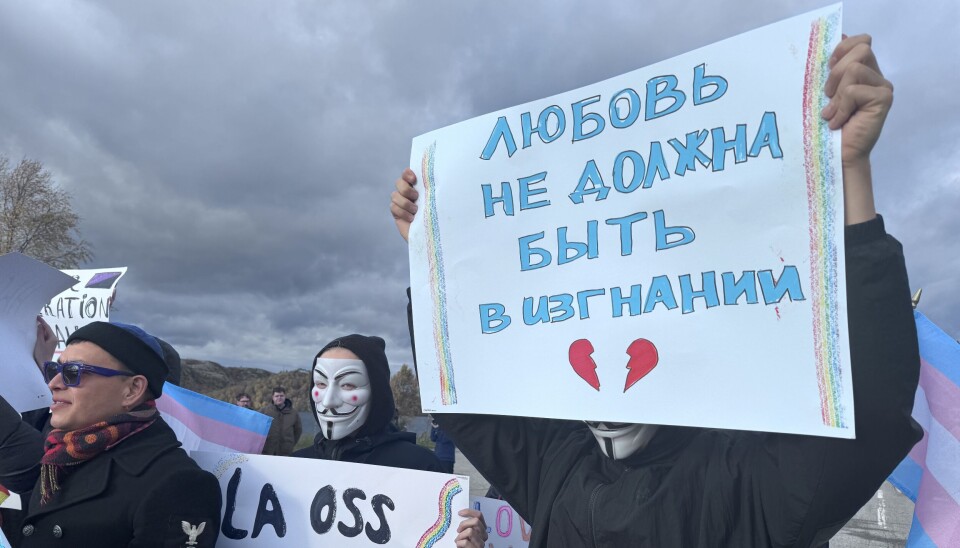
“Love should not be in exile”
Barents Pride is an annual LGBT+ festival that has been held in the Norwegian city of Kirkenes since 2017. It was founded by a Russian human rights organization, the Norwegian Helsinki Committee, Amnesty Norway and Foreningen Fri. The festival symbolizes the unity and solidarity of the LGBT+ communities of Norway and Russia, as well as of other countries of the Barents region.
The festival has become an important platform for expressing support for the rights of queer people in regions where the freedoms of this group remain under threat, especially against the backdrop of homophobic and xenophobic policies in Russia. This year, Pride took place from the 24th to 28th of September.
“No one is free until everyone is free” - action at the border
As part of the festival, an event was held on the border of Russia and Norway, near the Storskog checkpoint. Participants created posters with messages for the Russian authorities. It was windy outside, but the sun was shining brightly. A Norwegian police drone was flying in the air: the authorities made this decision for the safety of the participants.
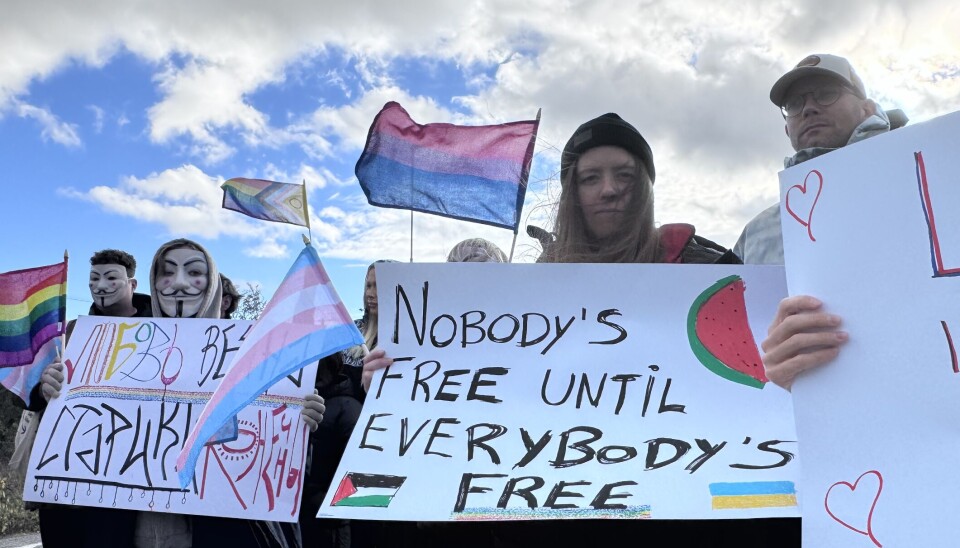
“We are not here for the Norwegians,” Olga, who took part in the event, said to the Barents Observer. “Today, it was important for us to turn specifically towards the border with Russia. First of all, we stand in solidarity with queers who do not have a voice in Russia, who cannot speak out, speak and love openly.”
“Olga” is an artist and activist from Russia who is currently living in exile because of her country's homophobic policies. She decided to attend the event at the border to express solidarity with Russian LGBT people during this difficult time.
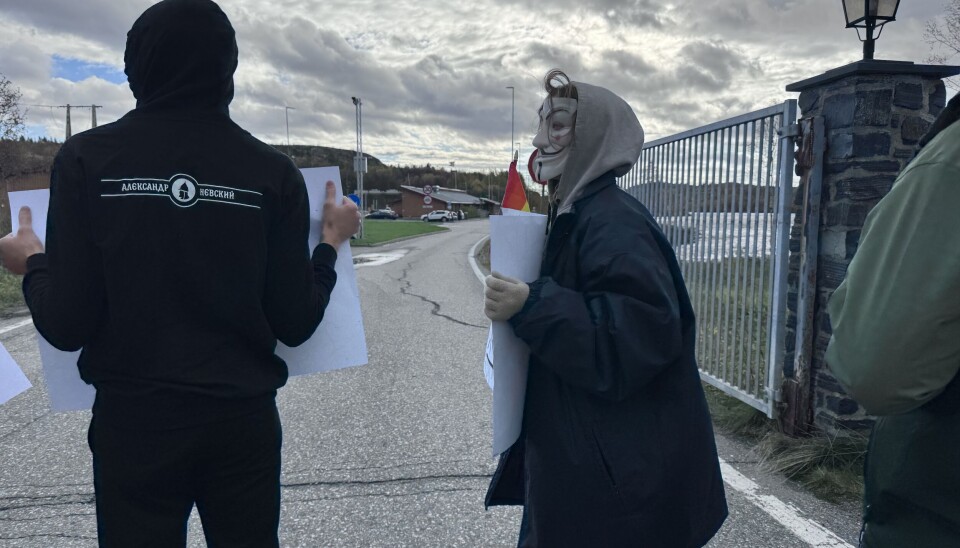
Although “Olga” no longer lives in Russia, she speaks with pain about the situation of the queer community in her country:
“The only thing I feel is endless pain and the desire to help and come out, no matter what. I always draw posters in Russian, supporting LGBT representatives from Russia.”
“Evgeny” left Russia after the start of the full-scale invasion of Ukraine and now lives in an EU country. He is deeply worried about his friends in the queer community:
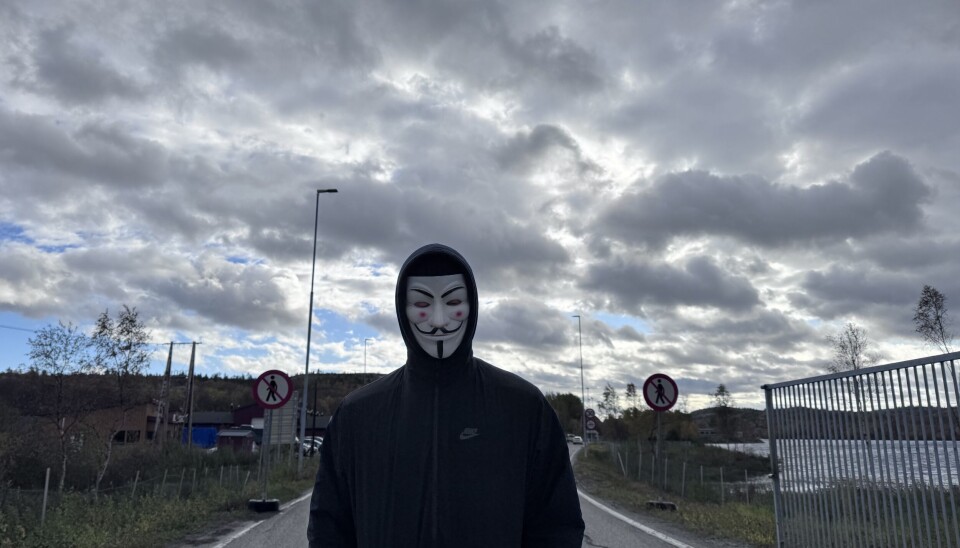
“I worry about my friends who are part of the queer community just like me,” the activist shared their feelings. “I also know how difficult it is for my transgender friends now, especially with receiving medical support. But it is quite difficult to fight mentally and physically with the aggressor that Russia is. Sometimes it seems that you can’t go on any longer, but there’s still hope.
think this is a great initiative, because there is not much support for Russian queer people. There are not many such initiatives, so it is great that there is Barents Pride.”
“In a moment things will change”
The festival featured an exhibition with works by artists from Russia. It opened with a performance of a Russian poetess reading her poems. Her name cannot be disclosed as the artist returns to Russia after the festival.
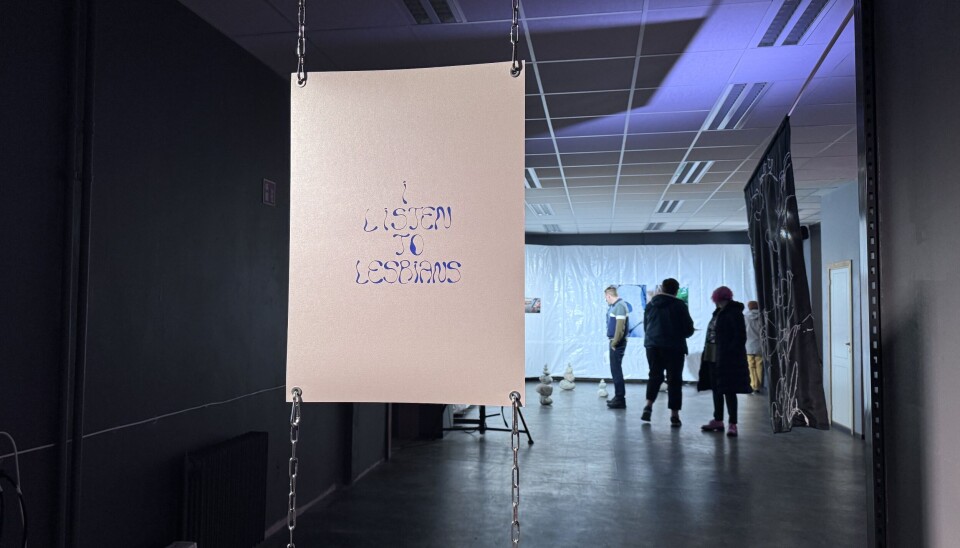
The poetess's free verse contained a reflection on childhood and childhood thoughts on identity. The poems included thoughts on sexuality, orientation and its acceptance.
Daria Makarova is the author of the installation “In a moment things will change (with all our souls, even though you have non)” presented at the exhibition. Zinc plates, which may seem like obscure artifacts at first glance, hide much darker meanings which are revealed as you delve into the context of the work.
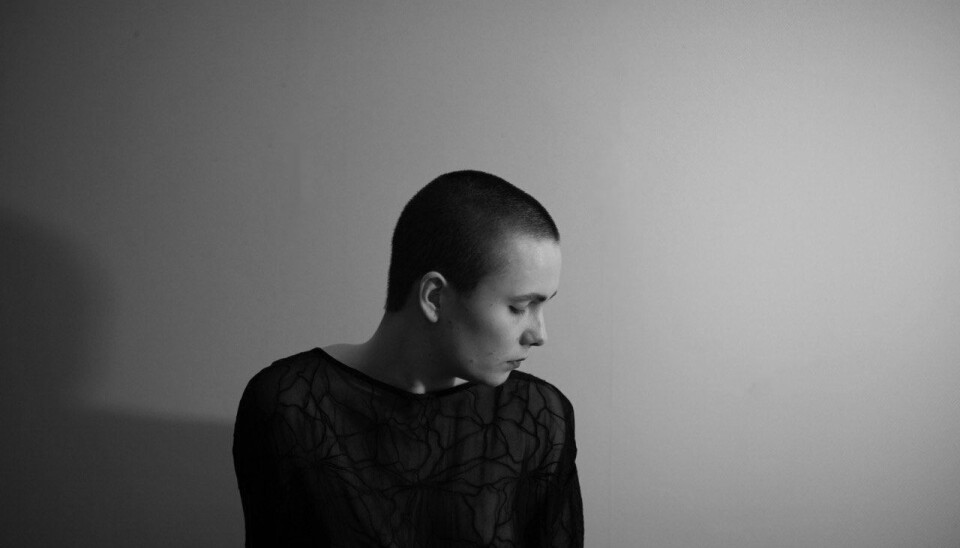
“A lower rate of decomposition, no cadaveric alkaloids, no inconvenient deformity, no individuality of the once “valuable” body... Government disregard for past events and life itself. Only the (re)production of dead bodies, driven by personal interests… 1979 1991. 2007. 2014. 2022. What is left now?” – this is how Makarova comments on her socio-political installation.
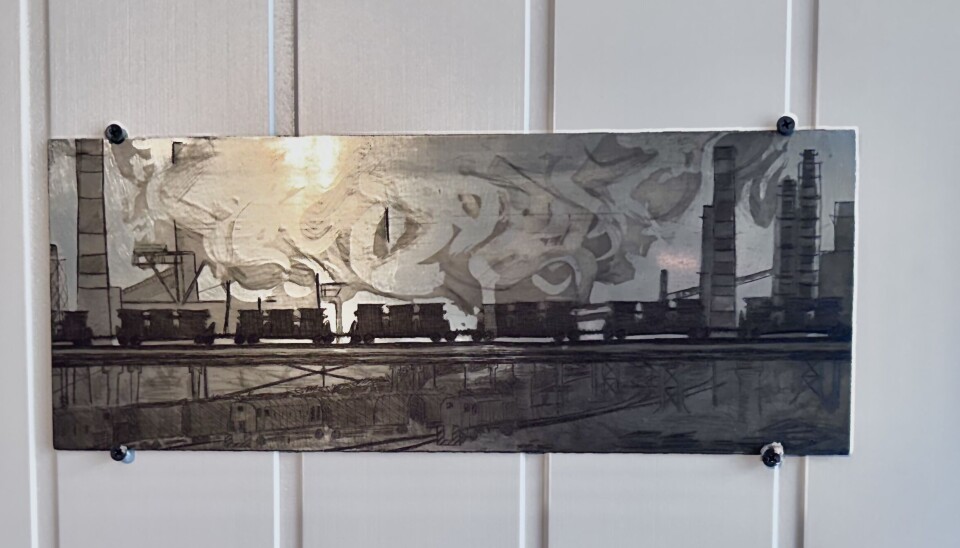
Daria told the Barents Observer that she was prompted to create this work, among other things, by the war in Ukraine, "which even more ruthlessly demonstrates the legacy of all the previous wars unleashed first by the late USSR, and then by Russia."
Reflections on masculinity sound in the photographs by Bogdan Shirokov, presented at the exhibition “Bridges”. He explores male gender socialization and the stereotypes associated with it.
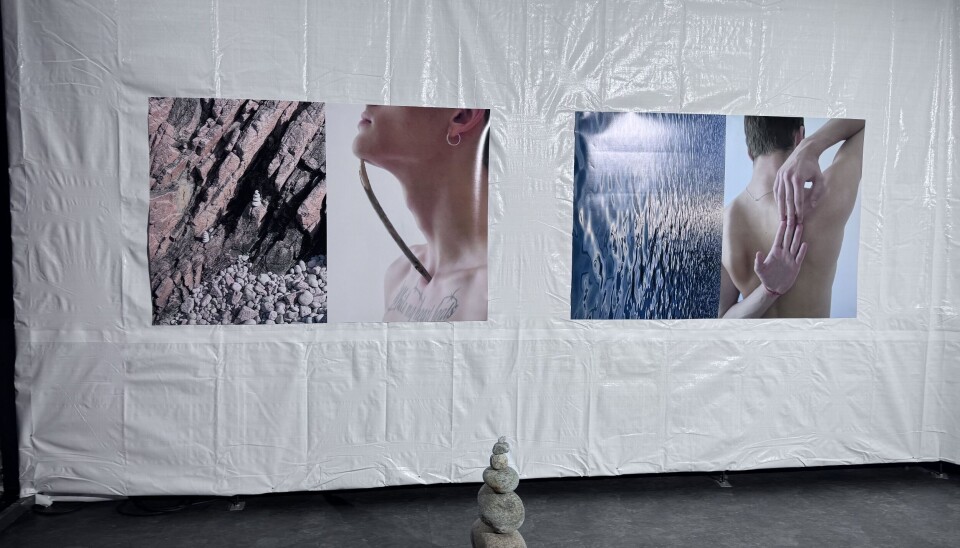
“This work demonstrates the metaphorical part of the “bridge” that connects us as members of the queer communities of Russia and Norway,” Bogdan said about his project. “On the right are photographs from the author’s personal archive, from the current project exploring the significance of the male figure, its hidden emotionality, vulnerability and sensitivity in the context of the post-Soviet space and the problems associated with toxic masculinity, machismo and repression.”
The local church in Kirkenes held Rainbow Mass. The aim of the service was to unite people, express support for the LGBT community and stress the importance of love and equality. What made this local church service stand out was that priests emphasized that “love is above all.” Rainbow flags, a warm atmosphere and the participation of people from different countries created a special feeling of solidarity and freedom.
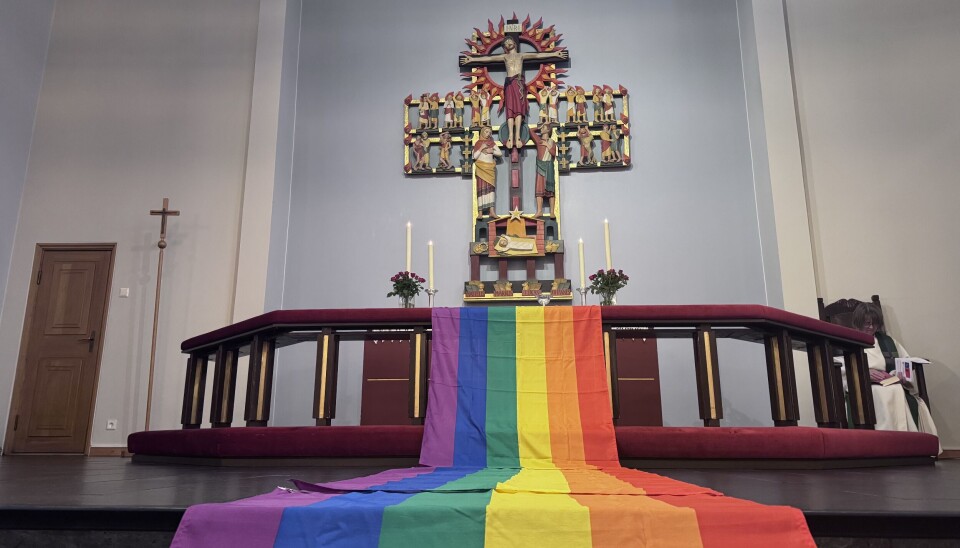
Some people had tears in their eyes after the service and thanked the priests for their support.
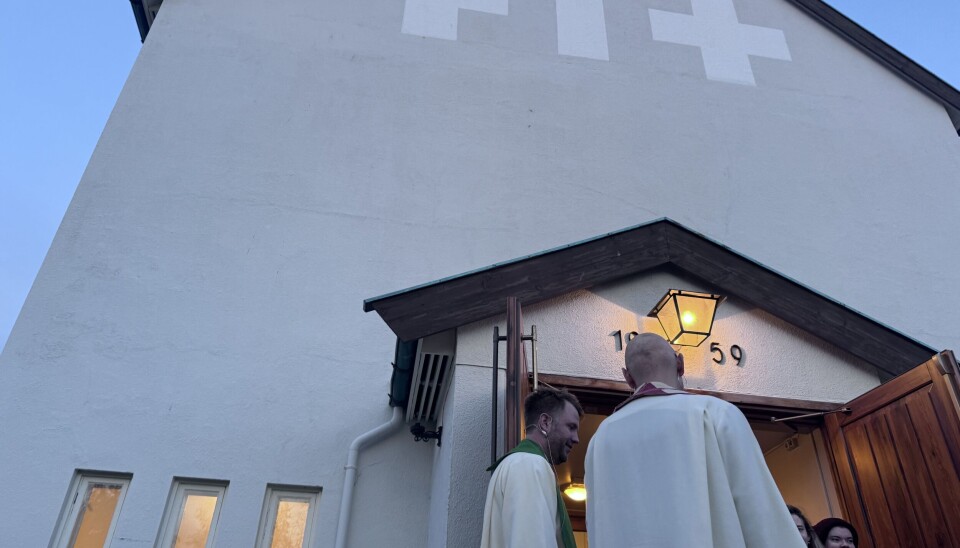
We are queer, we will not disappear
Perhaps the most striking event of the Pride is the march. Russians, Norwegians and people from other countries walked along the streets of the border town to show their belonging or to express solidarity with LGBT people who are forced to live in authoritarian regimes. Despite strong wind and rain, about 100 people gathered for the march.
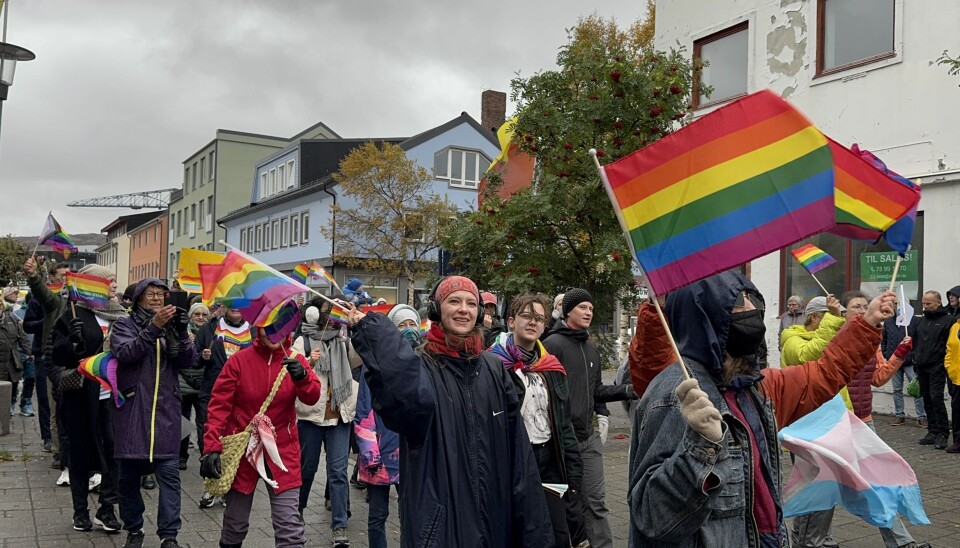
“We are queer, we will not disappear”, the marchers chanted.
People marched through the streets of Kirkenes with slogans about freedom and equality, expressing support for those forced to hide their identity under repression. These ideas formed the basis of the speech of the mayor of Sør-Varanger, Magnus Mæland, at the closing ceremony of the festival, where he spoke about the importance of the freedom to be oneself and live without fear, highlighting the contrast between the democratic values of Norway and the oppressive authoritarianism across the border.
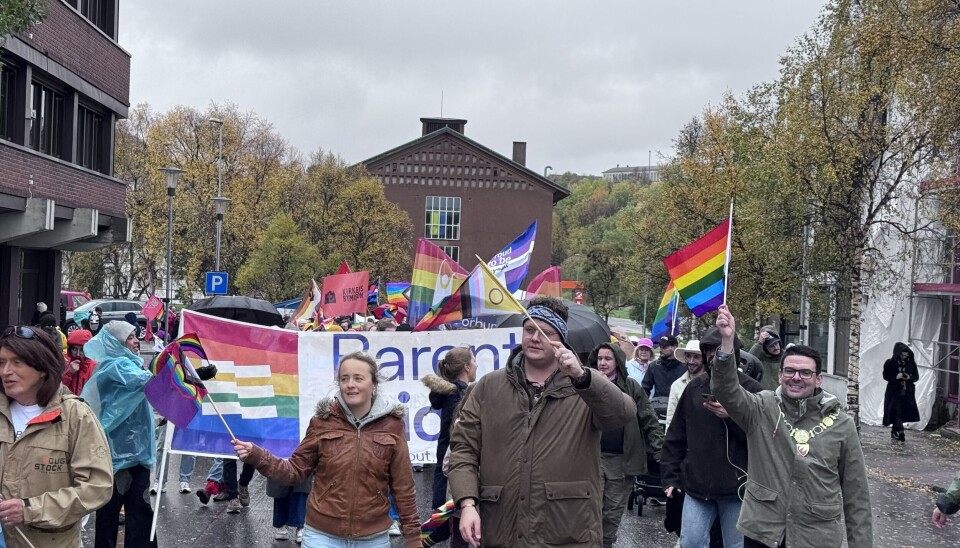
“There is no more beautiful feeling than to love and be loved,” says Mæland. “To feel safe with others and that you can live your life with someone else, someone with whom you can share both good and bad times. Here, in Sør-Varanger, we are who we are. We love those we love. We meet each other with love and care.”
“Barents Pride is a celebration of freedom, freedom to love others and be who you are, as well as freedom from oppression. Freedom to live one’s life to the fullest, freedom not to hide who you are. Here we live in a democratic society with a liberal rule of law. A society for all people who want to live in freedom and peace.”
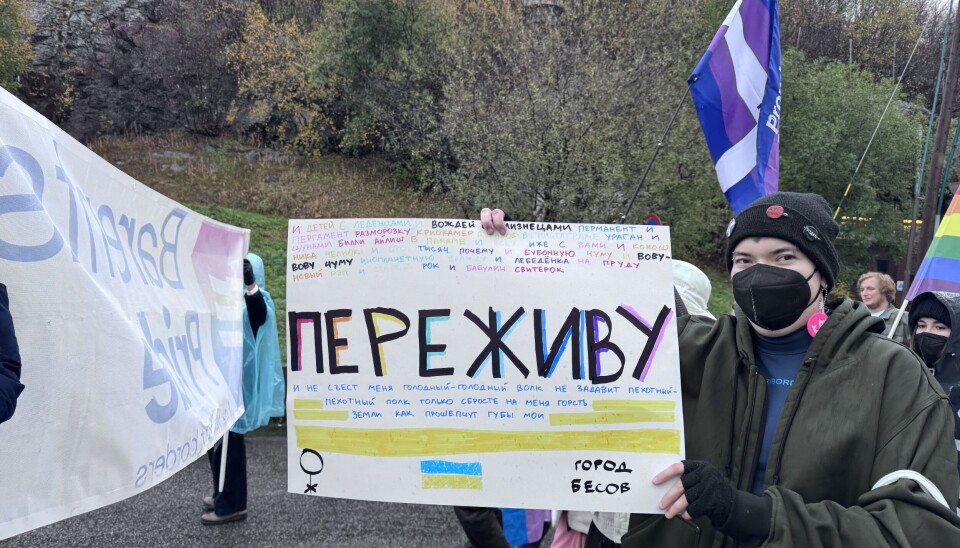
“On the other side of the border, in Russia, people live in fear because of their sexual orientation, they live in fear of what their leaders will do to them,” the mayor of Sør-Varanger continued. “They live in an authoritarian, increasingly totalitarian regime, where basic human rights are violated every day. Good people fight hatred, if we do not fight it, hatred and evil will win. Evil is always within the choice.
Fear and anxiety in the community
This year, the anxiety among festival participants was noticeably greater than last year. Many activists were forced to hide their faces behind glasses and masks. Interviews became more difficult: some agreed to speak only on condition of anonymity, while many refused altogether.
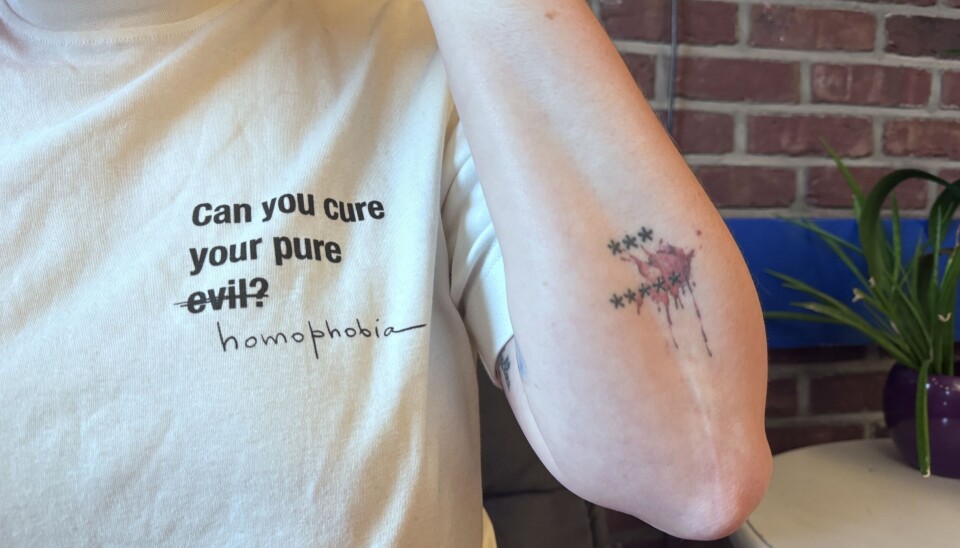
Russian activist “Alyona” will return to her hometown immediately after the festival. In the past, she was a well-known LGBT activist in her city, and repeatedly faced threats, including from the well-known homophobic activist Timur Bulatov.
Due to repressive Russian laws, Alyona could not participate in the festival openly.
“I’m not scared, but I’m angry that I’m in this situation and can’t participate,” “Alyona” told the Barents Observer. “Before the full-scale war in Ukraine, I was a public activist, known not only in my city but throughout Russia. Some of my actions were widely reported in the media. So having to hide is very unpleasant for me. I either participate openly or I don’t participate at all.”
“Mark,” who came to Barents Pride as an organizer, lives in central Russia with his partner. In a conversation with the Barents Observer, he described how intense anxiety haunted him throughout the festival. Mark couldn’t even get out of the bus during the event at the border – his fear kept him in.
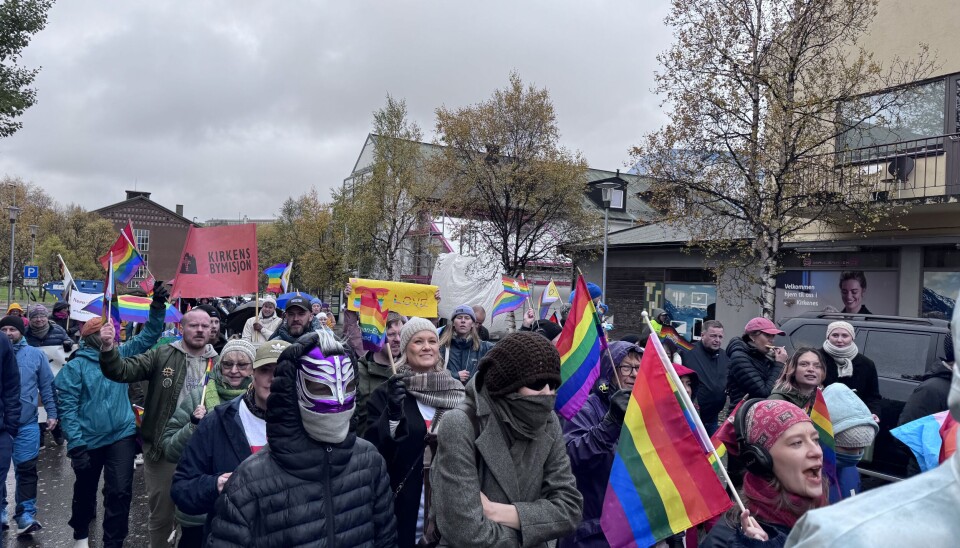
“People are more cautious this year,” “Mark” explained. “They are careful with their words, actions, and displays of emotion, especially when it comes to same-sex relationships. No one knows where or how their face might pop up."
What changed for LGBT people in Russia by 2023
Holding Barents Pride in 2024 was more difficult for two reasons: closed borders and homophobic laws that threaten the safety of festival participants.
In recent years, the Russian government has passed a series of repressive laws against the LGBTQ+ community, significantly limiting their rights and freedoms. These laws have not only increased pressure on members of the queer community, but have also significantly worsened their social and legal situation.
The law banning so-called “propaganda of non-traditional sexual relations among minors” was passed in 2013, but its scope was expanded in 2022. The December 2022 amendments to the law introduced a complete ban on any “LGBT propaganda”, including among adults. Now, movies, books, news media, online resources and any public mention or positive depiction of LGBT+ topics are banned.
In July 2023, a law was passed that prevents transgender people from accessing legal and medical confirmation of their gender transition. The law banned gender reassignment surgery and the ability to change the gender marker on documents. It also blocked transgender people from accessing hormone therapy, which dealt a serious blow to their rights to health care. The law also threatens existing marriages if one of the spouses is transgender, as such unions can be annulled.
In November 2022, Russia’s Supreme Court ruled to recognize the fictitious “International LGBT Organization” as an extremist organization. This decision was a blow to human rights activities in the field of LGBT rights.
What also made participation in Barents Pride more difficult this year was that it was impossible to get from Russia to Norway by land. People had to travel to Kirkenes by plane through third countries with some of the activists spending more than two days on the road. The reason for this was the decision of the Norwegian authorities to only let in Russians who are heading to Norway or the EU for “serious” reasons such as work, family or studying in Norway or the EU. As a result of this decision, many of the participants had to spend a lot more money on their journey from Russia to Norway.
















